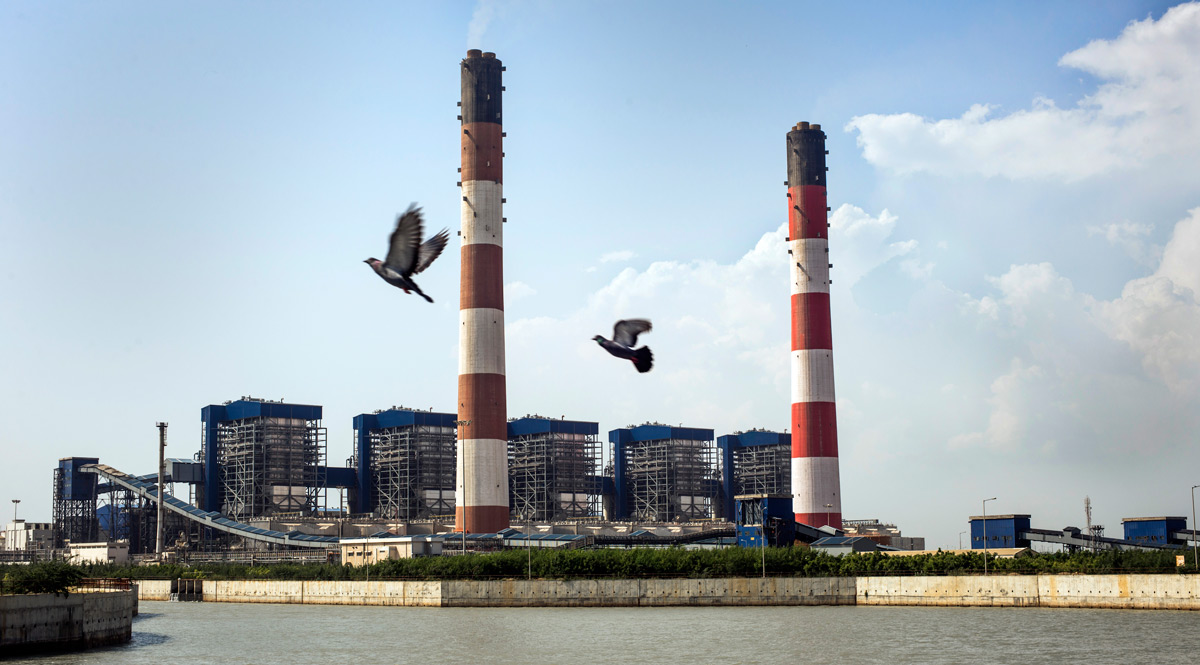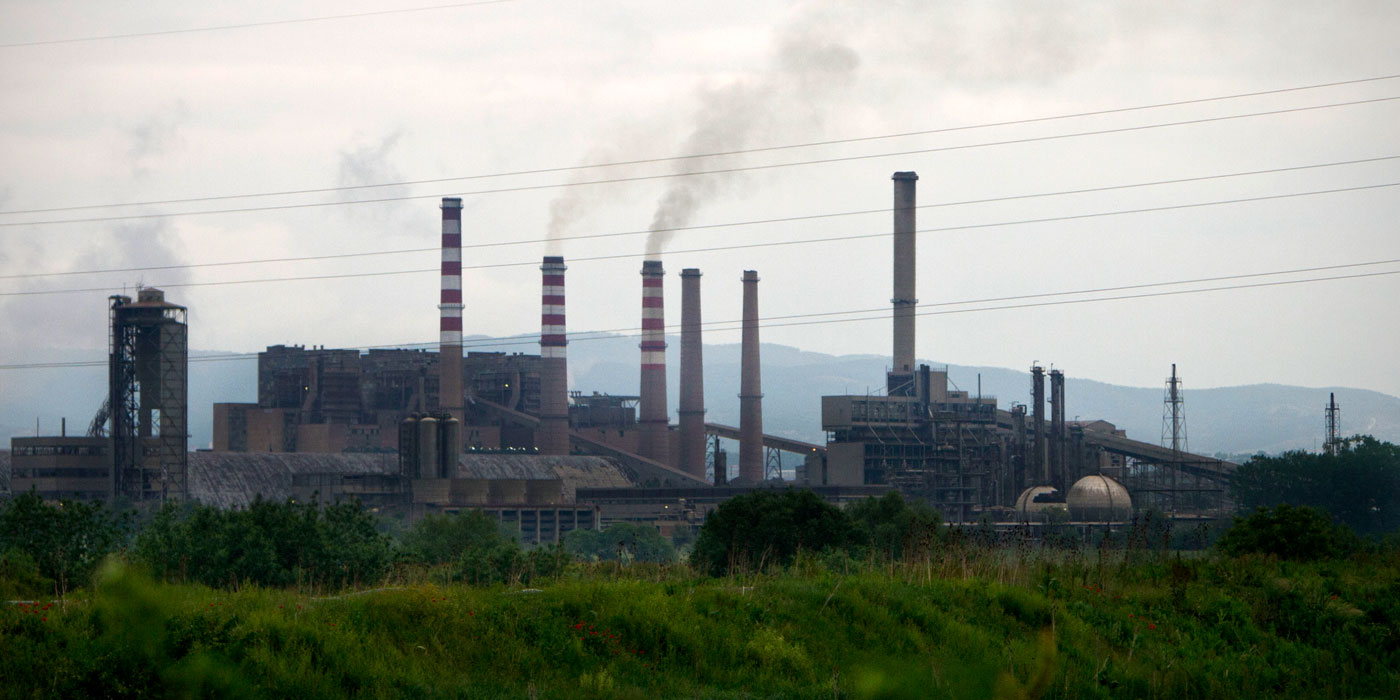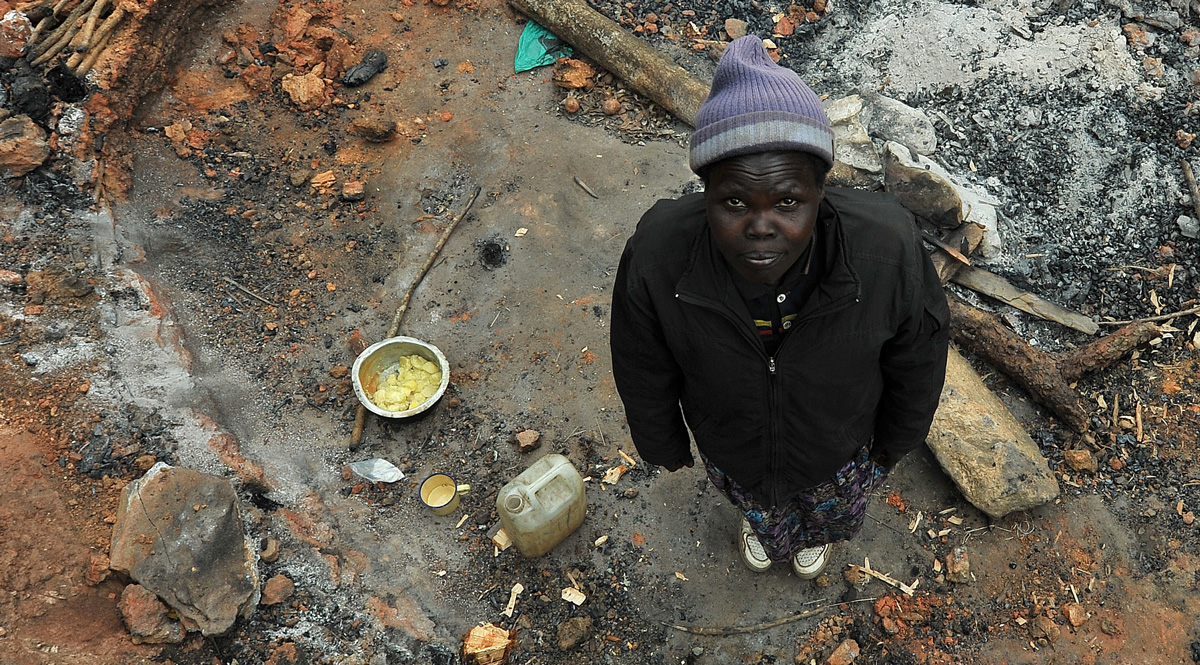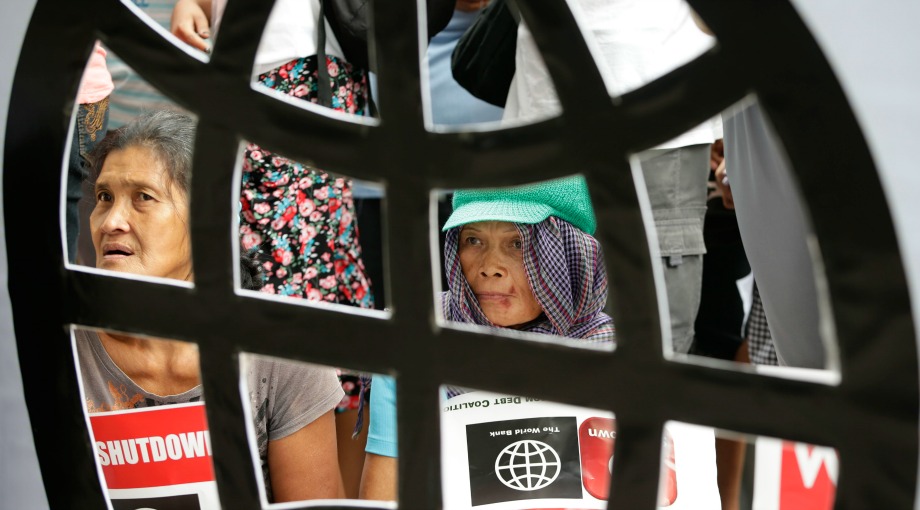The World Bank Group caused serious harm to fisherfolk, farmers and villagers in northwest India by bankrolling a giant coal-fired power plant on an ecologically fragile stretch of coastline, a lawsuit filed on Thursday in U.S. federal court in Washington, D.C., claims.
The suit accuses the World Bank Group’s private-sector lending arm, the International Finance Corporation, of “irresponsible and negligent conduct” in handling its $450 million financing package for the coal plant. Lawyers for EarthRights International, an environmental group with offices in the U.S., South America and Asia, filed the suit on behalf of people living and working near the coal plant, which is located along the Gulf of Kutch, an inlet of the Arabian Sea.
The suit, which seeks class-action status, claims that the Tata Mundra coal-fired plant has “fundamentally altered the local environment.” Heated water pumped from the plant has drastically reduced catches for traditional fishing clans, and coal dust and fly ash from the plant has contaminated farms and homes, the suit claims.
The suit seeks compensation for harm to local residents’ livelihoods and a court order enforcing IFC’s standards for protecting people and the environment.
The IFC would not comment directly on the lawsuit’s claims. An IFC spokesperson provided a statement saying that the Tata Mundra plant “provides reliable power to rural and urban-based domestic consumers across the western states of Gujarat and Maharashtra and the northern states of Haryana, Punjab, and Rajasthan.” The spokesperson said the IFC and the plant’s operators have been working to address local community concerns.
In previous statements, the IFC has said that area residents are better off because it helped finance the power plant. “IFC has played a critical role in the Tata Mundra project, both in terms of investing and in providing guidance on the environment and social practices,” it said. By developing guidelines to reduce harm to neighbors, and helping Tata implement them, “IFC ensured that the project’s environmental and social impacts are in line with good international industry practices.”
The World Bank Group has two main lenders – the World Bank, which lends to governments, and the IFC, which lends to corporations such as the Tata group, an Indian conglomerate that built and operates the coal-power plant.
Thursday’s lawsuit comes amid reports by the International Consortium of Investigative Journalists, The Huffington Post, The Investigative Fund and other media partners that the World Bank and the IFC have regularly failed to enforce their rules for protecting people in the path of development projects.
World Bank Group President Jim Yong Kim said in March that he had “deep concern” about how the bank is handling the social impact of its projects. He announced an action plan for dealing with the concerns.
The IFC says that its mission is to “carry out investment and advisory activities with the intent to ‘do no harm’ to people and the environment.”
The lawsuit filed on Thursday claims that the IFC’s handling of the Tata Mundra project represents a “mission failure” because the plant’s construction and operations have “done substantial harm to local people and the environment.”
The suit charges that the IFC knew that the plant would have serious social and environmental consequences but moved forward with financing “without taking reasonable steps to prevent the harms it specifically foresaw.”
International organizations such as the World Bank Group generally claim a high level of legal immunity, which makes it difficult to sue them. Rick Herz, EarthRights’ litigation coordination, said his group believes that the circumstances of the case and recent legal decisions will allow the litigants to defeat any claims of immunity.



